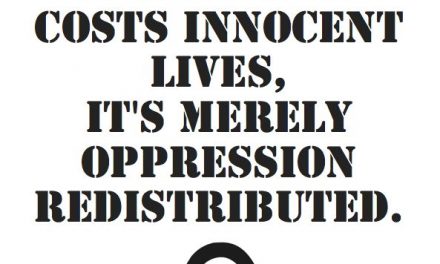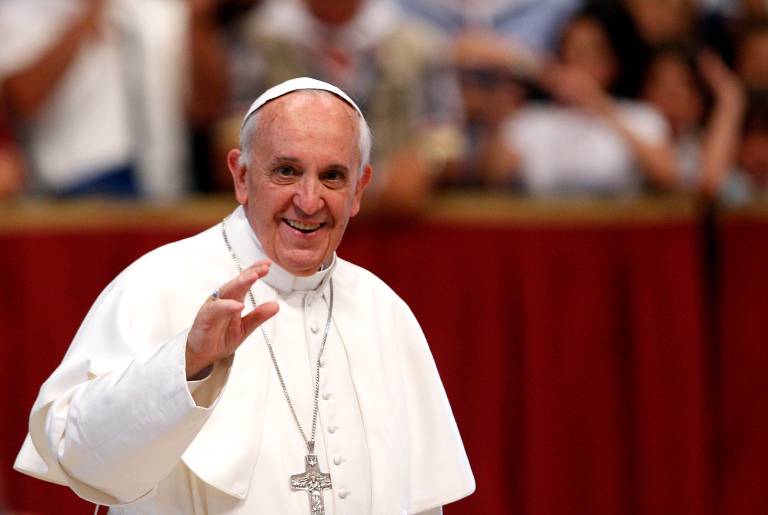Abortion. Illegal immigration.
I think a knee jerk reaction with these two highly volatile issues in the upcoming US election is to categorize them as:
Abortion: Catholic position = Pro-life = Conservative = Republican
Illegal immigration: Catholic position = dignity and worker’s rights for all = Liberal = Democrat
In today’s political climate, most issues seem to map out in this way, so that every single issue is categorized along the lines of one political party or the other. Most recently, the Ryan budget has been discussed in this way, as has the Leadership Conference of Women Religious.
But there are numerous problems in trying to classify Catholic teachings into these two (and only two) nice, neat categories of liberal/Democrat and conservative/Republican. The document Forming Consciences for Faithful Citizenship notes this:
89. As Catholics, we are led to raise questions for political life other than “Are you better off than you were two or four years ago?” Our focus is not on party affiliation, ideology, economics, or even competence and capacity to perform duties, as important as such issues are. Rather, we focus on what protects or threatens human life and dignity.
So, one of the problems with making the church map on to two-party thinking is that it denigrates a very long, deep and nuanced tradition of Catholic thought. As the bishops say, we’re in this for the long haul – not for cheap shots in a two- or four-year period. Catholic teaching cannot be neatly summed up into 140-word tweets, bumper sticker slogans or newspaper headlines, because something will always get left out, and perhaps even the meatiest and most substantial thing(s). “Everyone” knows that Catholics think abortion is wrong, but not everyone knows that the stance against abortion emanates from some of the same points theologically as the stance for the dignity and rights of illegal immigrants, or the stance against torture. (Doctrines such as: the imago dei and being called into salvific life with God….) Theologically-speaking, to make a case against personal choice in relation to abortion (so often named as a “conservative” issue) is also to make a case against any number of human-rights atrocities so often linked to “liberal” issues.
Another problem, quite simply, is that to make this mental move of categorization is also to make the church into the image of the American political system. Where we make that move, I fear that we lack the capacity to call those same two parties into question. And, we increasingly lack to the capacity to enable our brothers and sisters in Christ to call us to task, regardless of which “side” we are on.
My fear is that the language – especially as I see it bandied about on the internet – makes us into enemies of each other. If I’m “against” the Ryan budget, then I must be a liberal Democrat who is clearly the enemy. If I’m against President Obama’s contraceptive mandate, then I must be a conservative Republican who is clearly the enemy. But in naming these as enemies, we subjugate our relationships to each other as Christians, in favor of other groups that make us not into people with whom I share the Lord’s table, but people I am “against”.
Fr. Emmanuel Katongole mentions the phenomenon of enemy-making in his book about the Rwandan genocide (speaking himself as a Rwandan residing in Uganda): Mirror to the Church: Resurrecting Faith after Genocide in Rwanda “. Katongole raises questions about the relationships between national, apparently arbitrary identities, and being members of the Body of Christ. How is it, he wonders, that people who had just celebrated Easter – in the most Christian African nation (85%) – would, four days later, begin a 100-day, horrific genocide based on nationally-known (but certainly not Biblical) tribal identities? More searchingly, Katongole discusses the ways in which Western culture provided much of the impetus for these tribal identities in our colonization.
And – there is a question, too, of the ways in which we Westerners have built our own two “tribes” – our own ways of categorizing people and ideas that can deny the resurrection of Christ exactly to the extent we fail to see Christ at work in “the other side”.
Katongole suggests that his book ought to be an eye-opening mirror as much for us Westerners as it is a story about Rwanda. Could we, too, be Rwanda? Could we find ourselves “celebrating” Easter, only four days later to be at each others’ throats? While we have not gotten to the point of genocide, I think we are already at each others’ throats. In common speech, we name our parishes as “the liberal hippie parish” or the “parish with the conservative values” and so on. We name our parishes in the ways we name our political affiliations and we count ourselves “safe” when we are with the right one. So I worry that we begin to see each other not as “Catholic” – as members of the Body of Christ – but by political affiliations and tribalisms.
It is human nature to seek safe places, especially in times such as these – when there is much that is in turmoil and much that seems threatening. But isn’t it also under just such conditions that Jesus called Peter out of the boat and into the storm? If you are feeling safe and secure in your parish or group, and it is safe precisely because it’s got the “right” orientation as mapped out by a political system that is not Catholic, I think there is a need for you to witness to your fellow members of the Body who are not where you are – and let yourself be witnessed, too.





Dr. Bennett,
I appreciated this piece on the problems presented by the intertwinement of politics and faith. I agree that people too easily seem to classify opinions on major issues as either liberal or conservative and fail to take into account that Catholic teaching transcends political boundaries. As Catholics, Church teaching should inform our political opinions and at the same time we should not be so stringent in our beliefs that we cut ourselves off from those with a dissenting view, for in doing so we block out the light of the spirit.
I thought your discussion of Fr. Katongole’s book and the Rwandan genocide to be quite interesting. It reminds me of the way the people cheered for Jesus as he entered Jerusalem and then a short time later condemned him to death. Though I think it must be quite different in a country that is so economically poor, what happened with the people turning against eachother so soon after Easter makes me, too, wonder if the same thing could happen to Catholics in the U.S. if we did not have the material comforts that we do. I think as Catholics we need to ask ourselves, what affiliations in our lives take precedent- those to a particular political party or those to our faith?
This idea raises an even bigger question of how well are our Church’s and Catholic schools educating the people on Church teaching on social and political issues and encouraging them to put it into practice in their lives? As you mentioned there are some “liberal hippie” parishes and some parishes “with conservative values.” There are the Catholics who go on the Right to Life March and those who go to the School of the Americas Protest. Though it is natural for people to tend towards one way or the other, there are certain fundamental values and teachings, rooted in Scripture, Papal documents and statements by the Bishops, that are shared among all Catholics. I pray that the God blesses the universal Church with more unity than division, more dialogue than disagreement and more humility than self-righteousness.